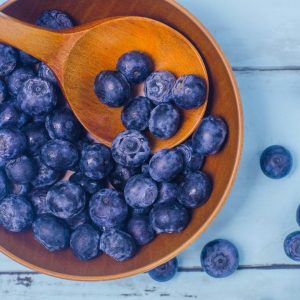
My friend and I vacationed in Tennessee and shared a lovely, rented home for a week. Having both lost our husbands, we discovered each of us had been attributing “hidden items” on playfulness from beyond, as in I know I put that there! Where is it? As we worked together in the small kitchen to prepare dinner, we decided Tom and Gene were ganging up on us.
Any explanation other than growing dementia! Come to find out, forgetting the name of someone we’ve known for years, or the name of an object, and misplacing objects, is normal as we age. Does that mean we’re on the road to Alzheimer’s?
Not necessarily. (Whew!) In this blog, I will highlight the work of Dr. Greger’s research, and Dr. Neal Barnard, founder of Physicians for Responsible Medicine, that speaks to this issue.
Dr. Greger’s take on lutein
In his short video, we learn that research shows dark green leafy vegetables have antioxidant and anti-inflammatory properties that help reduce visual and mental impairment. Previously, observation seemed to imply lutein in the veggies protected brain function and the eye’s macula. But is there a proven cause and effect?
Turns out there is. Even a cup of, say, spinach or ½ cup kale improved spatial memory, reasoning ability, and complex attention. Even baseball players’ visual speed improved. Unfortunately, eating green leafies in late stage Alzheimer’s has not shown to help, but there seems to be a definite preventive outcome before anyone reaches that stage.
Here’s the link to Dr. Greger’s video on YouTube
https://www.youtube.com/watch?v=Hg9U-UWH7fQ
Dr. Neal Barnard on memory and much more
As we age, some memory impairment is normal, such as forgetting names or where we put the keys. But again, research has shown what we eat makes an enormous difference to our brains.
Like Dr. Greger, he explains some foods help and some foods harm. Blueberries, and other deep purple foods like grapes, have anthocyanins that are antioxidants.
We need Vitamin E, found in foods like walnuts and almonds, for our brain health, but be careful. They contain fat, and overdoing it for your brain may thicken your waistline.
Omega 3 fats are helpful, but don’t grab the salmon right away. Salmon also has “bad” fat, and you can get omega-3 from broccoli (Who knew? Turns out, there’s 7-8% of “good” fat in some veggies).
The Chicago Health and Aging Project done in the 90s showed patterns of good and bad foods. People who eat plant based (lots of fruits and vegetables) have far less mental decline, even to the point of putting off 11 years of mental aging.
Dining on fast food, pizza, dairy, and meat, raises the risk of dementia because of the high saturated fat content in those foods. We need fat in our diet, but we can find healthier fat in avocados. I discovered guacamole can sometimes be a tasty substitute for mayo.
Unfortunately, oils are high in saturated fat. Bernard called out palm oil and coconut oils. But Dr. Li has no problem with olive oil. Yet when I look at the label, it too is high in saturated fat. However, there is such a thing as avocado oil, but Bernard did not mention it. Here’s the link to Dr. Bernard’s video. It’s excellent!
https://www.youtube.com/watch?v=lS5W25dXj18
Physicians for Responsible Medicine
I want to promote this organization to everyone, and especially to my fellow health care providers. https://www.pcrm.org/. It is full of credible, researched, best practices health information. Also, Dr. Bernard is a shining star in the treatment of diabetes.
For the professional (and the curious layperson) click on the Good Nutrition heading, then Nutrition for Clinicians. Dig into those Good Medicine magazine archives… but come up for air to eat your blueberries!



I am all about blueberries! And guacamole is my friend. And kale is on my menu every week. I still have my memory lapses (too many files!), but plants are always my go-to’s!
And that’s why you’re still able to work!